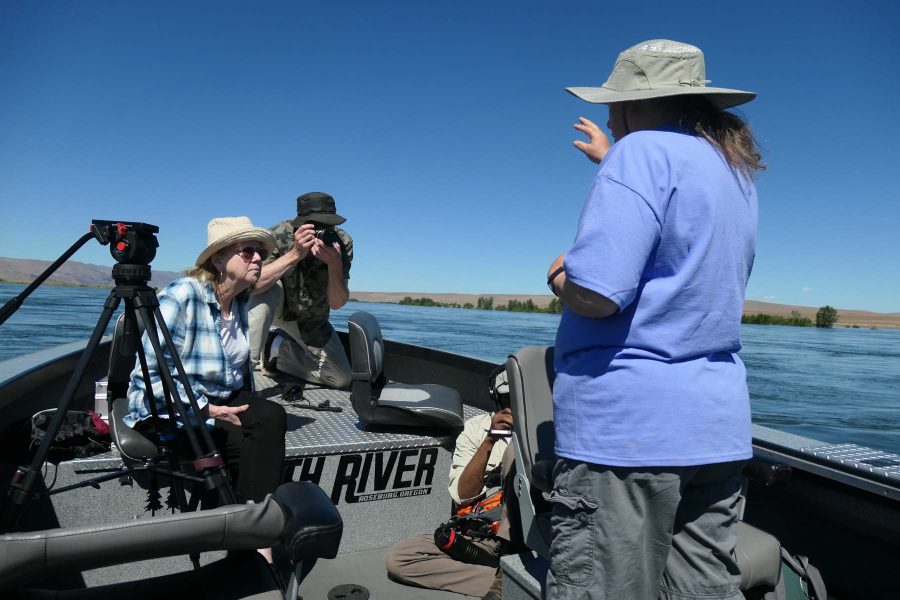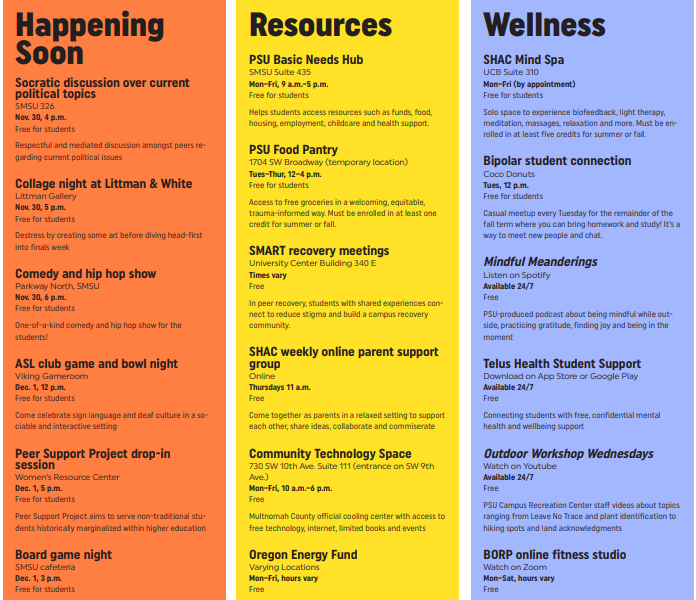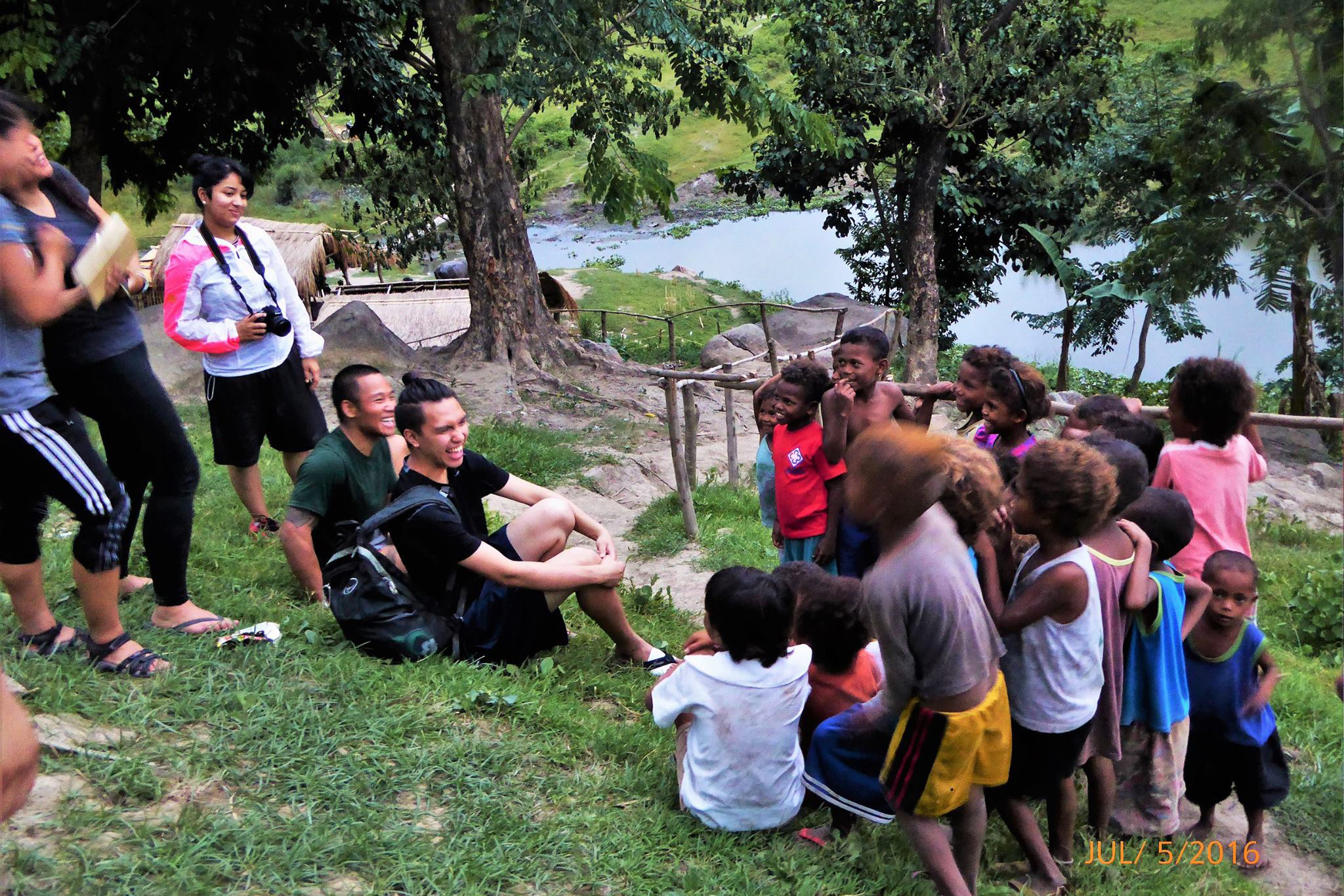Within the first seven weeks of the fall quarter, the Basic Needs Hub—or the Hub—assisted over 200 students with housing insecurities. That’s an average of about six students per day—all with minimal funding from Portland State.
The Hub provides students with food, housing and financial relief. The Hub has one navigator—Lee Ann Phillips—who handles referrals at PSU. From Monday to Friday, she chats with students face-to-face.
“So we have quite a few students who are living in their car,” Phillips said. “I’ve had three this week who have come in who are living in their car right now. So really, universities are really looking at this now.”
At the Hub, students meet one-on-one with a basic needs navigator who works with them through housing insecurities and can make a referral to the Affordable Rent for College Students (ARCS) program which is a program run by College Housing NW.
The ARCS program subsidizes living costs. Students pay a much more affordable rate through the program, and the deal also includes internet and most amenities.
Portland State, Clackamas Community College, Native American Youth Academy, Portland Community College and Mount Hood Community College are the five educational institutions which have basic needs navigators who refer and intake students who are eligible.
Students eligible for ARCS pay $500–850 monthly to live in CHN. Currently, 34 students live here. Recently, 12 students moved out, seven of whom had graduated, Phillips said. Right now, she has seven on the waitlist.
Student Legal Services (SLS) offers enrolled students free representation. SLS can resolve landlord-tenant disputes and other areas. The SLS also wrote the Renters’ Rights Handbook, an all-encompassing guide for the rights and responsibilities of student tenants. The handbook also contains essential information on leases, laws and fees.
Phillips stressed how underfunded they are and how the Hub has struggled to secure donors.
Funding
The Hub can purchase vouchers for students so they can stay in hostels or hotels. However, PSU doesn’t give the Hub money for this expenditure.
The Hub can purchase vouchers for students so they can stay in hostels or hotels. The General Student Emergency Fund helps pay for services like the hotel vouchers. An ad hoc committee originally oversaw the fund and is now a budget item in Student Affairs. Moreover, last year they also were able to get some additional funds for student aid through the Associated Students of Portland State University student government.
The demand is substantial given concerns regarding nutritional, financial and residential security have heightened during this academic year. This could cause some students to drop out.
The Hub relies on the state for funding, however, Phillips said there isn’t any. “There’s no funding,” Phillips said. “I only get funds through the state. I haven’t been able to find any yet. I’m hoping during the Day of Giving we can get some more. Because we don’t have a lot and everything that I offer [at the Hub] has been donated.”
“The amount of resources—food insecurity, housing insecurity, financial—are just going up,” Phillips said. “With PSU participating in that it would be great. We also understand that enrollment is down. But it would be helpful for us to find a way. We could use more navigators. I’m the only one for students.”
The Hub reported that half of the student body has experienced food insecurity, 45% have experienced housing insecurity and 16% have experienced houselessness.
PSU President Ann Cudd cited the emergency funds and the Supplemental Nutrition Assistance Program (SNAP) training program for student success when asked how PSU supports the Hub, though both these are funds and programs provided through the school from the state. Regarding PSU’s support of the Hub, Cudd held out a verbal votive.
“Portland State does feel that it’s really important,” Cudd said. “We do support the administration of that and it is an important resource for our students. Again, there are lots of opportunities to support students on campus. This is one that certainly the need has grown rapidly over time, and we’re doing the best within our limited resources to help with that.”
Previously, the Hub ran two shelters. One of them called The Landing shut down in June due to a lack of funding. Before closing, students were allowed to stay there temporarily while looking for more permanent options.
Previously, the Hub referred students to a shelter called The Landing which was specifically created for students. However, it shut down in June 2023 due to a lack of funding. Before closing, students were allowed to stay there temporarily while looking for more permanent options.
Losing the Landing left a mark. Instead of sending students to a place where they can stay temporarily for free, the Hub uses its inroad with campus hotels.
University Place Hotels offers students temporary boarding for a reduced price. Phillips has set aside rooms for those in distress. A king-sized bedroom typically costs $130 versus the $89 after the discount. Youth hostels—such as Lolo Pass and Youth Hostel International—also accept students at discounted rates.
The Hub’s other resources
The Hub also gives out emergency meal vouchers. Fee-paying students can redeem it at Victor’s Dining Center in Ondine. Vouchers are just one way the Hub addresses food insecurity.
The Hub also gives out emergency meal vouchers donated yearly by PSU Eats, Chartwells and Residence Life to the Hub, who disperse the vouchers and track them for the donors. Students can redeem these at Victor’s Dining Center in Ondine Hall. Vouchers are just one way the Hub addresses food insecurity.
The Hub also supports students applying for SNAP—a state and federal-funded program. All eligible, low-income individuals and families can apply. Students have different application requirements and there are different requirements for undergraduate and graduate students. Any student can meet with a basic needs coordinator who can provide support for those who want to apply for SNAP and better understand the specific requirements needed to receive benefits.
A spike in housing insecurity
The Homelessness Research and Action Collaborative (HRAC) collates national data with studies on the PSU campus. The most recently completed study—done in 2019 and published in 2020—showed that PSU students experience slightly higher rates of housing insecurity than the average. To compare, HRAC Co-Founder Greg Townley referenced studies done by the Hope Center, a temple university that does national studies on housing.
“The numbers are in line with national figures, but slightly higher,” Townley said. “For four-year universities our numbers are higher than the average. They’re closer, more comparable, to community college rates, which isn’t too surprising considering what a large percentage of transfer students we have.”
This fall, HRAC began conducting another study, sending out a survey to students focusing on students’ needs and desires regarding low-income housing.
The survey has ended, and Townley and HRAC Assistant Director Jacen Greene are beginning to lay out data information about housing insecurities, needs and preferences. They said they are hoping to have the results finalized sometime in December.
Greene laid out what each phase of the study would entail.
“Phase 1 of the study, which led to this report by PSU’s Homelessness Research and Action Collaborative, includes a literature review, a summary of student survey results, a description of programs based on interviews with staff and administrators, an analysis of programs at other institutions and a set of recommendations for better addressing housing needs,” Greene said. “Phase 2 includes the results of a comprehensive survey on housing insecurity and homelessness to be conducted this fall, as well as a pair of reports by outside consultants and options for creating additional student housing and addressing policy barriers.”
The Student Experience Survey sent out in 2019 and 2020 revealed a spike, with over 60% of students experiencing some form of houselessness or housing insecurity.
“We always need to be working in tandem between hardship funds and emergency shelters,” Townley said. “Those are always needed… but too often, the conversation seems to stop there. You have to constantly keep putting out fires until you actually have the permanent base of housing where students know they have housing they can stay in.”
In 2023, PSU secured $750,000 from the Community Project Funding Opportunity, directing the award towards addressing houselessness and housing insecurity. The bulk of the funds was dedicated to supporting at-risk students, while the remaining amount funded three distinct analyses.
HRAC oversees the Barriers to PSU Student Housing Security initiative, examining best practices, surveying housing instabilities and exploring potential programs. An external consultant assesses the housing market and identifies new building locations. The concluding report provides recommendations for policy changes based on local, state and federal laws.
The Department of Housing and Urban Development (HUD) wrote a guidebook concerning housing insecurity in higher education. Greene recommends HUD’s advice alongside the Education Northwest Basic Needs Services Implementation Rubric.
The new survey is intended to highlight the needs of those marginalized who are often at a greater risk for experiencing forms of houselessness, such as first-gen students, Oregon opportunity grant students, international and immigrant students, those formerly in foster care and those formerly convicted of a crime or involved in the criminal justice system.
Greene endorses several significant changes.
First, the university should keep equity in mind. Get students, student resource centers and the office of global diversity and inclusion involved. Many groups need different types of support and engagement.
Secondly, build free and subsidized housing. Funding should also be for programs, staffing levels and expertise.
Lastly, Greene said the university should streamline emergency fund applications. The different rules and requirements can be confusing. A combined form might clear these hurdles. Bring in other programs, centers and offices so that they can coordinate regular meetings, he recommended.
The hope is that the new study will provide HRAC with information on the current unique risks and needs of students so that they can lay the foundation to implement better permanent housing solutions on campus.
“It’s important to have the emergency sources but this focus is on housing,” Townley said. “All housing is shelter, but not all shelter is housing.”
Notes from the editor:
The initial article stated that College Housing Northwest (CHN) can direct eligible students to the Affordable Rents for College Students (ARCS) program. This process is not directed by CHN. Instead, the basic needs navigator at each campus can make the referral to the ARCS program.
The initial article stated that Portland State, Clackamas Community College, Portland Community College, Mount Hood Community College, the National Education Association (NEA) and Oregon Health and Science University (OHSU) all coalesce under the ARCS program. However, the NEA and OHSU are not affiliated with the program. PSU, Clackamas Community College, Portland Community College, Mount Hood Community College and the Native American Youth Academy are affiliated.
The initial article noted that the Day of Giving is a way the Basic Needs Hub receives donors. We would like to add that the PSU Foundation, staff, individuals, community organizations and some students also actively donate to the Hub.
The initial article noted that the majority of the Hub’s funds come from the state. The name of the bill supporting the Hub is House Bill 2835 and another bill is in the works to provide more funds for basic needs coordinators to use to support students.
The initial article mentions the Emergency Needs Fund is dispersed by student government and overseen by an ad hoc committee. This fund—called the General Student Emergency Fund—was originally funded by an ad hoc committee and is now a budget item in Student Affairs. It is dispersed through an eligibility process that students can apply for on the Hub’s website. Other emergency funds are also available on the website, including an undergraduate emergency fund and college-specific funds.
The initial article stated that the Hub ran two shelters, one of which was the Landing. The Hub would refer students to the shelters, however it did not participate in the facilitation of either shelter. First United Methodist Church oversaw the Landing, staffed by church members, volunteer capstone students and staff from PSU who operated individually. It was funded with donations from the church and students at PSU with grant funding.
The initial article stated that Any student taking at least part-time fulfills the criteria for SNAP and listed requirements to receive SNAP benefits. All those things that were listed are not things the Basic Needs hub looks at to see if they are eligible instead the basic needs coordinator meets with the student to help them apply and the state determines their eligibility.
Lastly, the initial article also notes that the Hub disperses emergency meal vouchers. These vouchers are donated yearly by PSU Eats, Chartwells and Residence Life to the Basic Needs Hub, who disperse the vouchers and track them for the donors.






